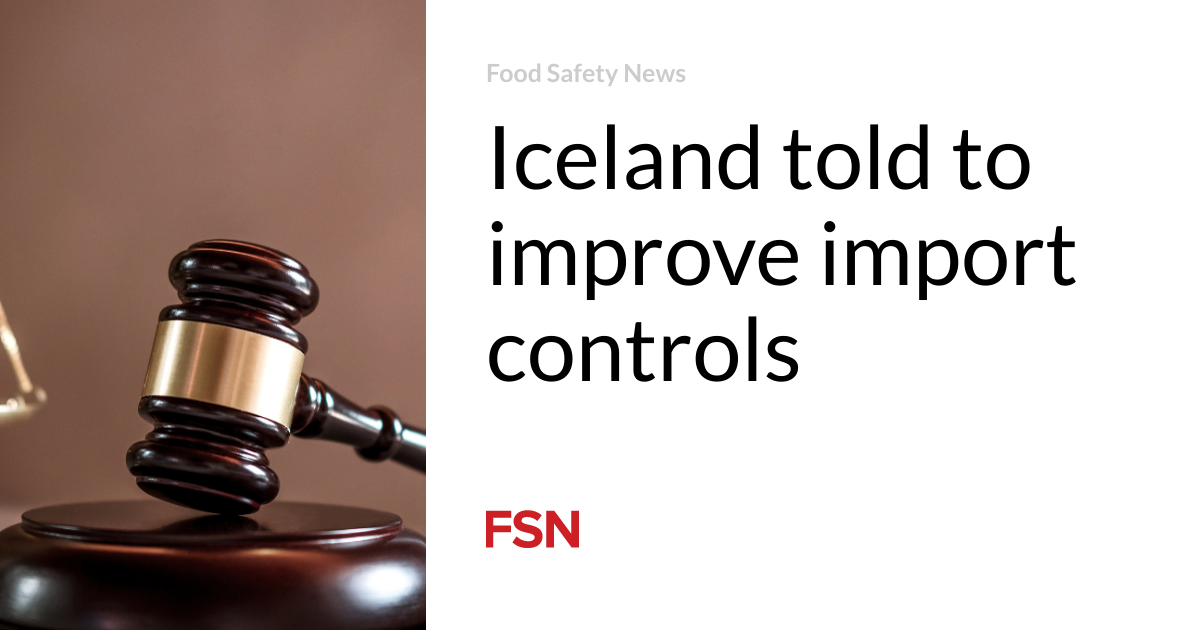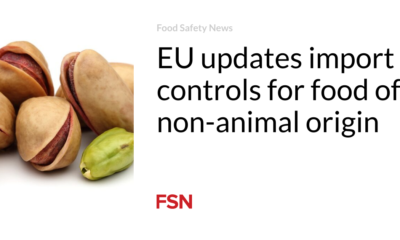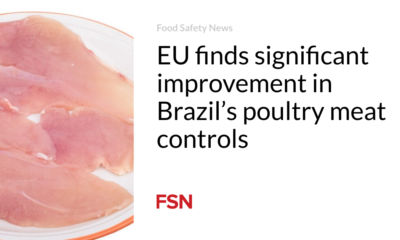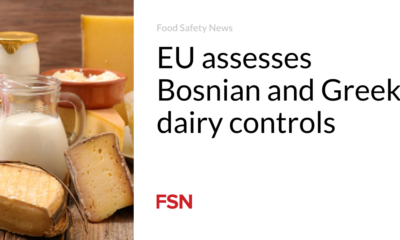Food
Iceland was told that import controls needed to be improved

Iceland has been warned for non-compliance with rules regarding the import and transit of products of animal origin.
Iceland is part of the European Free Trade Association (EFTA). The EFTA Surveillance Authority (ESA) monitors how the country implements European Economic Area (EEA) rules on food and feed safety, animal health and welfare.
ESA has sent a letter of formal notice to Iceland regarding the non-compliance. This is the first step in an infringement procedure. Iceland has two months to respond before ESA considers the matter further.
Timeline of incidents
In 2017, ESA verified that official controls relating to the import and transport of products of animal origin, animal by-products and live animals were carried out in accordance with EEA law.
One of the shortcomings revealed was the lack of a system to ensure that consignments from non-EEA countries in transit and/or transhipment undergo veterinary checks when required by law.
ESA also found “insufficient” coordination and information exchange between Icelandic Customs and Revenue (Customs) and the Icelandic Food and Veterinary Authority (MAST). Similar problems came to light during audits in 2010 and 2012.
These problems meant that the Icelandic authorities could not guarantee that products of animal origin had undergone the required checks during transit or transshipment before being cleared through customs. The 2017 audit found that it could not be ruled out that non-compliant consignments of animal products entered Iceland and circulated freely in the EEA market.
In 2020, Iceland introduced a law change to solve the problem. Customs also informed ESA of plans to connect its IT facilities to the European Commission’s Trade and Control Expert System (TRACES).
However, in 2022, the change was withdrawn after complaints from stakeholders. Iceland has not yet informed ESA about progress in improving cooperation between customs and MAST. ESA has also not received any information indicating that Customs has access to TRACES. These developments have led to the ESA deciding that Iceland has failed to fulfill its obligations under the EEA rules.
Audit of poultry meat
ESA also revealed that Iceland has strengthened food safety controls for poultry and poultry meat products. The report was published in February 2024 after a follow-up audit.
During an audit in 2022, ESA found that Iceland needed to strengthen its control system to ensure safe food. The recent audit evaluated the implementation and effectiveness of Iceland’s corrective actions based on four recommendations.
Based on corrective actions taken and planned by the Icelandic authorities, one suggestion regarding the post-mortem inspection was closed in February 2023.
ESA concluded that all other deficiencies had been resolved. These included weak checks on animal health before slaughter (ante-mortem inspection) and weak checks on slaughtered animals for signs of disease (post-mortem inspection) to ensure that meat is safe for consumers.
MAST has recruited additional official veterinarians and further training is planned.
An online data collection registration system is being developed to simplify the analysis of data in areas such as hygiene checks, animal welfare and post-mortem findings.
(To sign up for a free subscription to Food Safety News, click here.)













